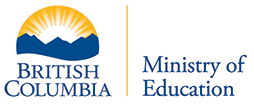
Unit Plan: Introduction to Matter
Science / Grade 6
Big Ideas
Everyday materials are often mixtures.
Essential Questions
Students will keep considering…
- How are properties used to solve problems?
Evaluative Criteria
Teachers should consider how summative assessments should be based on clear criteria and include a variety of ways for students to show demonstrate their learning.
- N/A
Monitoring Progress
Teacher will monitor progress:
Teachers can monitor progress through ongoing formative assessment including but not limited to:
- N/A
Resources
TEXTS
- Making Thinking Visible by Ron Ritchhart
Reflection
How will teachers and their students reflect on and evaluate the completed project?
Teacher Reflection
- What aspects of the unit went well
- What did students struggle with
- What did you struggle with?
- What would you add/revise the next time you taught this unit?
- Were there any unintended outcomes?
- Were students engaged?
Downloads
Stage 1 – Desired Results
Big Ideas
Everyday materials are often mixtures.
Concepts:
- Matter
Transfer Goals
Students will be able to independently use their learning to…
- Use understanding of properties to address real-life properties.
Meaning
Students will understand that…
- Matter has properties.
Students will keep considering…
- How are properties used to solve problems?
Acquisition
Students will be skilled at…
- Questioning and predicting – make predictions about findings.
- Reviewing matter and what it is
- States of matter
Which Core Competencies will be integrated into the unit?
- Questioning
- Investigating
First People's Principles of Learning
The unit will make connections with:

The following resources are made available through the British Columbia Ministry of Education. For more information, please visit BC’s New Curriculum.
Big Ideas
The Big Ideas consist of generalizations and principles and the key concepts important in an area of learning. The Big Ideas represent what students will understand at the completion of the curriculum for their grade. They are intended to endure beyond a single grade and contribute to future understanding.
Core Competencies
 Communications Competency
Communications Competency
The set of abilities that students use to impart and exchange information, experiences and ideas, to explore the world around them, and to understand and effectively engage in the use of digital media
 Thinking Competency
Thinking Competency
The knowledge, skills and processes we associate with intellectual development
 Social Competency
Social Competency
The set of abilities that relate to students’ identity in the world, both as individuals and as members of their community and society
Curricular Competencies & Content
Curricular Competencies are the skills, strategies, and processes that students develop over time. They reflect the “Do” in the Know-Do-Understand model of curriculum. The Curricular Competencies are built on the thinking, communicating, and personal and social competencies relevant to disciplines that make up an area of learning.
Additional Resources
First People's Principles of Learning
To read more about First People’s Principles of Learning, please click here.
For classroom resources, please visit the First Nations Education Steering Committee.
